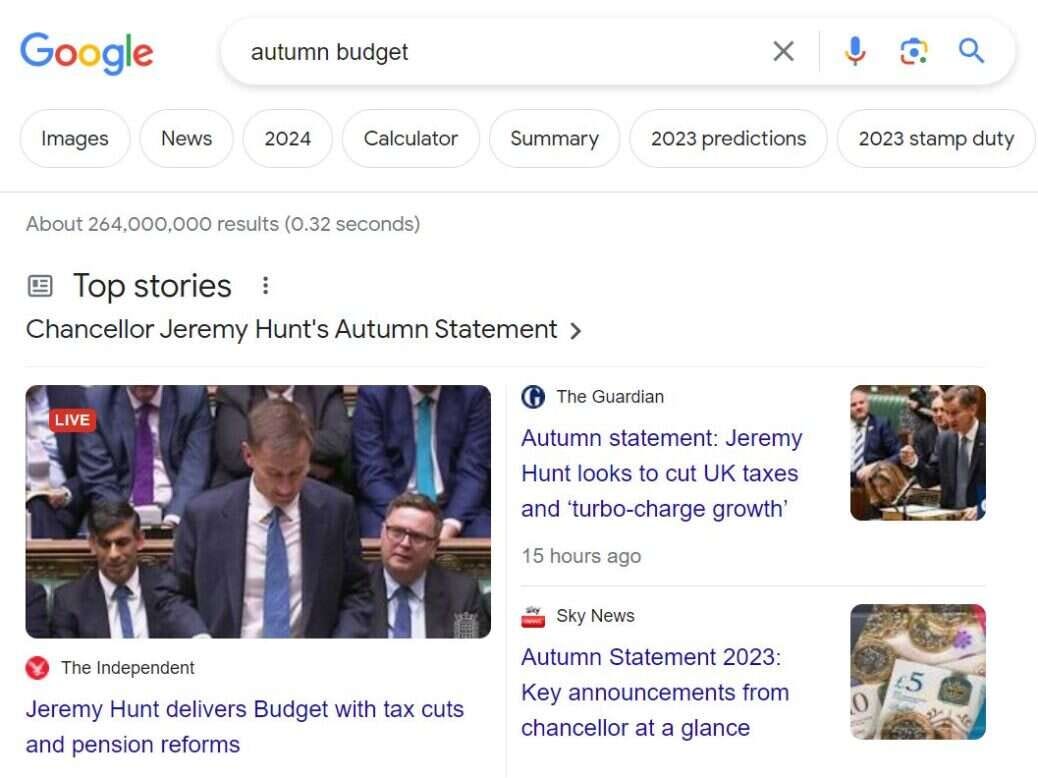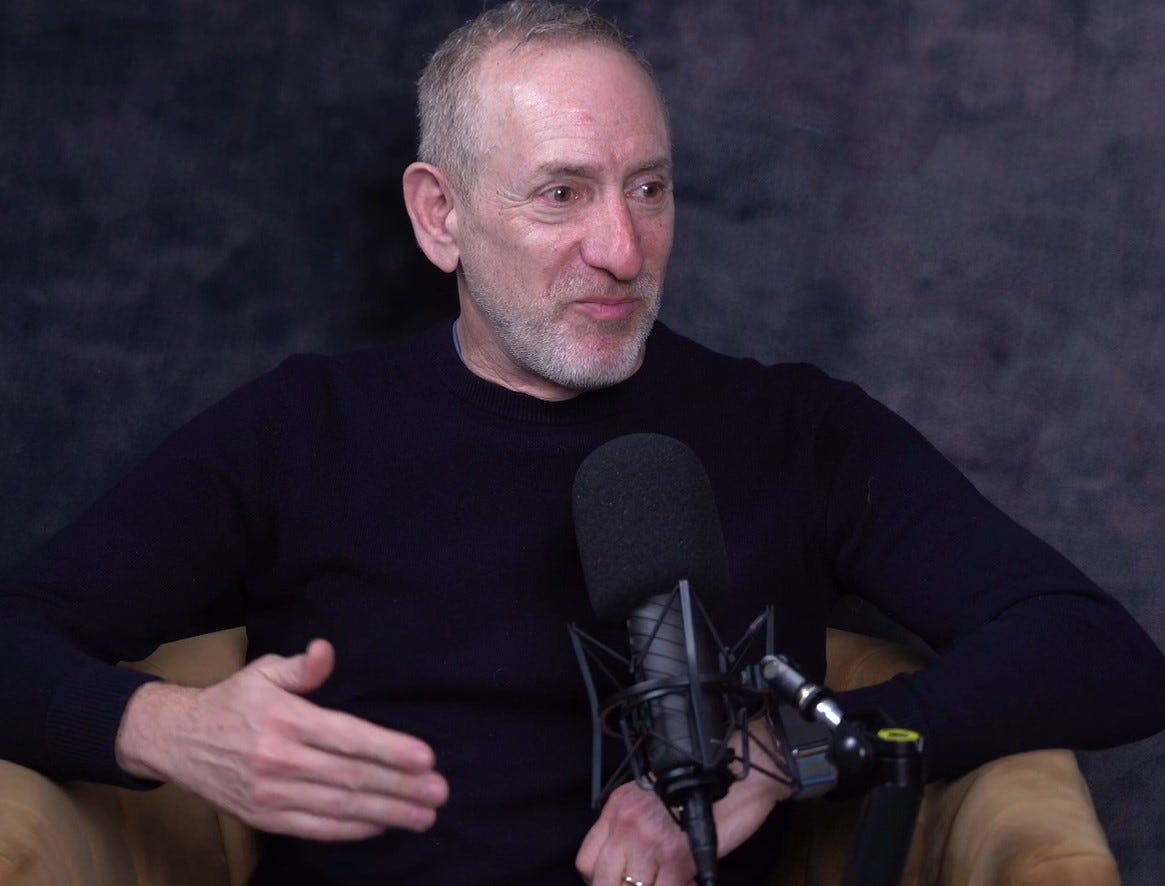Google claims experiment shows news is worthless to its platforms
Plus a former CNN correspondent says she "lost the support" of the company after becoming disabled and we have your news diary for the week ahead
Good morning and welcome to your daily Press Gazette media briefing on Monday 24 March.
Estimates for the true value of professional content to Google vary. In January the Public Interest News Foundation said it reckoned Google owes UK publishers more than £2bn in the UK alone for last year.
Now Google has done its own research and come up with a different figure: zero.
Gulp.
The search giant made this claim after research in eight European countries which involved blocking content from more than 13,000 publisher websites for 1% of users over ten weeks. Looking at Search, Discover and display advertising, Google found the impact on advertising revenue was "not distinguishable from zero".
Given that all Google Discover does is aggregate news content, the results of this research are baffling and sound a bit bonkers.
Discover is a personalised news feed installed on 800 million smartphones worldwide. It is the biggest single referrer of traffic to the UK's largest news publisher Reach. And yet Google claims if you remove professional content from Discover the result is... meh.
It is seems fantastical that the millions of articles carefully indexed by Google and surfaced in various ways are worth nothing to the search giant. And can it really make so little out of the Google display advertising tech stack which sits on most news websites?
But taking the Google research at face value I would just make two points.
1) In the future, when AI makes the search market a lot more competitive, which search service is likely to succeed - one with, or without, professional content?
2) If news is worth so little to Google why does it refuse to play fair when it comes to AI Overviews and allow publishers to see how much traffic the new service is driving (on Google Search Console) and allow us to block our content from being summarised without hiding it from search? Why is Google playing hardball with publishers on this point given its claim that we are the statistical equivalent of dandruff at a weigh-in?
One in four people in the UK are disabled. Are one in four news presenters, or newsroom colleagues? Even given the fact many disabilities are not visible, I doubt it.
Arguably disability gives someone a dramatically different point of view, which is something publishers would benefit from when it comes to solving the challenges they face.
And keynote speaker Saima Mohsin, injured in a work-related accident whilst working for CNN, made a passionate case for companies (including her own former employer) doing more.
On Press Gazette
Google says experiment shows news has ‘no measurable impact’ on ad revenue
Paul Liu, Google’s director, economics, said in a blog post that the tech company decided to do the test in response to “a number of inaccurate reports that vastly overestimate the value of news content to Google”.
Former CNN correspondent says she ‘lost the support’ of broadcaster after disability
“We risk our lives in the field thinking the company is there for us. Suddenly, my belief in my journalistic skills and talent being recognised didn’t mean anything because a disability overruled that.”
News diary 24 – 30 March: Spring Statement, Mahmoud Khalil deportation hearing
A look ahead at the key events leading the news agenda this week, from the team at Foresight News.
News in brief
The House of Lords Communications & Digital Committee has opened an inquiry into media literacy in the UK. Its chair said: "We are falling behind internationally, so it is important to examine what we can do to improve media literacy education both in schools and into adulthood.” (Parliament)
Hyperlocal news website Rochdale Online has closed after 27 years and is going into liquidation. (Hold the Front Page)
A first-person piece for The Guardian by a Canadian detained by US immigration for two weeks has led to $105,000 in donations for the publisher, according to Semafor.
TechCrunch has been bought by private equity firm Regent, whose founder "has an undeniable passion" for the brand. Former owner Yahoo, who sold it because it's "simply different" from its aggregator brands, will keep "a small interest" in the company. (The Verge)
Czech Prime Minister Petr Fiala has told the FT his government will "do everything that we can to give them the chance to continue in this very important role" after the US cut funding to Prague-based Radio Free Europe/Radio Liberty. (Financial Times)
Meanwhile Reporters without Borders has filed a legal complaint against the US Agency for Global Media demanding a halt to the dissolution of state news agency Voice of America. (RSF)
UK technology secretary Peter Kyle has told the FT of opponents (which include many in the media) to an opt-out system on AI copyright: "We will find a way through it and get both sectors facing the future and fit for the digital age". (Financial Times)
Meta has agreed to stop targeting a UK citizen with personalised ads after settling an ICO-supported lawsuit. The company has said it is weighing introducing an ad-free, paid subscription service in the UK. (The Guardian)
Also on Press Gazette:
Dotdash Meredith CEO Neil Vogel: ‘If you make yourself essential, you will be fine’
Acquisitions and video advertising drive National World 9% revenue growth
Politics Live presenter Jo Coburn to leave BBC after 28 years
Brand safety woes continue and the coming storm on AI litigation
Daily Mail US editor: Reader loyalty is brand’s biggest asset
Publishers seeing ‘concerning trends’ from advertisers in current political cycle
Newspaper ABCs: Daily Mirror drops below print circulation of 200,000
Latest Press Gazette podcast
Latest podcast: Generative AI could spell doomsday or a be a big pay day for publishers
Press Gazette editor-in-chief Dominic Ponsford caught up with New York-based publishing consultant Matthew Scott Goldstein (MSG) to talk about the future of news in the era of AI.
How concerned should publishers be about the threat posed to their business models by generative AI? It’s a 9.9 out of ten said MSG.
He explained why generative AI could spell the end of the road for publisher websites, but why it could also lead to a huge payday for the creators of quality content.





